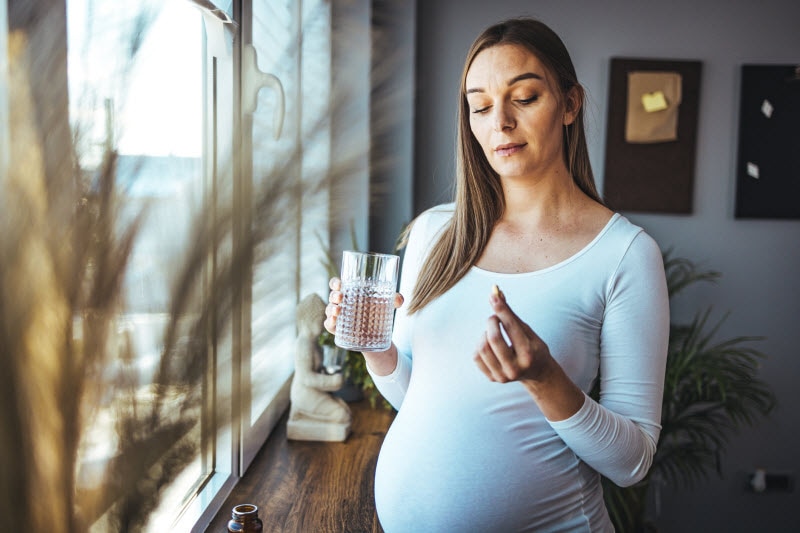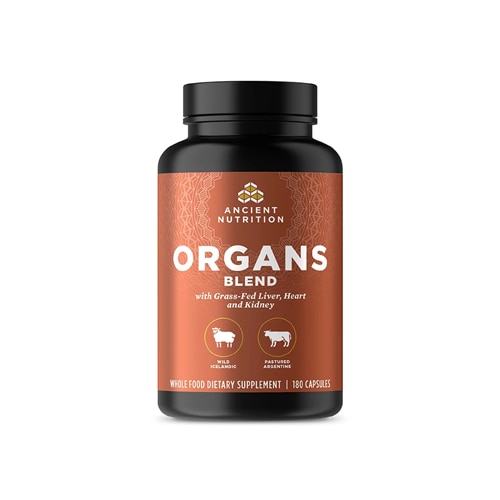[vc_row][vc_column][vc_column_text]When you don’t consume enough
iron on an ongoing basis, it impairs your body’s ability to produce red blood cells, which are responsible for transporting oxygen to all of your tissues and organs. The result? You may tire more easily, feel weak or feel like you have “
brain fog.” If these issues sound familiar, you may be wondering: "Should I take iron supplements?". The answer depends.
First, if you suspect you're not getting enough iron, it's a good idea to increase your intake by consuming more
iron-rich foods, such as fish, eggs, legumes and grass-fed meats. Secondly, you might consider taking a quality
multivitamin that supplies iron, or perhaps a more concentrated iron supplement if need be.

Functions and benefits of iron supplements
What are
iron supplements exactly? Put simply, they’re either capsules, tablets or liquid supplements that provide one of several types of iron.
The main types of iron you’ll find in supplement form are: ferric citrate (iron binded to phosphates), ferric sulfate (iron and sulfate), and ferrous gluconate (iron made from salts of gluconic acid).
Iron itself is an essential mineral that has some of the following functions:
- Promotes the production of healthy red blood cells which carry oxygen throughout the body
- Supports a healthy pregnancy, plus fetal growth and development
- Facilitates normal immune system function
- Supports cognitive functions and also sleep
When you take an iron supplement, you can experience:
- Support for cardiovascular and blood health†
- Support for healthy energy levels, as running low in iron can contribute to fatigue†
- Support for healthy fertility as well as prenatal and postpartum health†
- Support for cognitive health†
- Support for healthy sleep†
Who's at risk for not getting enough iron?
Because iron plays a role in maintaining healthy levels of blood, women are more prone to being low in iron due to having monthly periods. Children also need a lot of iron to grow and develop, so they can easily fall short if their diets are not adequate and balanced.
People who are most prone to iron deficiencies include:
- Those following vegan or vegetarian diets since these diets exclude the richest sources of heme (absorbable) iron
- Women who are pregnant, who have higher needs for iron
- Women with heavy menstrual periods, who lose blood each month
- Infants and children, who may not need a great enough variety of foods that provide iron
- Those who have trouble absorbing iron, such as people with kidney disease or digestive diseases
How much iron do we need, and how can we meet our requirements?
Ideally, we’d all get the iron we need from a balanced diet that includes a variety of nutritious foods, and possibly also with supplements if necessary (more on these below). Here are daily requirements for iron based on age:
- Women over age 19: at least 18 milligrams/day
- Pregnant women: at least 27 milligrams/day
- Women over age 50: at least 8 milligrams/day
- Men over age 50: at least 8 milligrams/day
- Children 0-12 months: 0.3 to 11 milligrams/day
- Children 1 to 8 years old: between 7 to 10 milligrams/day
- Teens ages 9 to 18 years: 11 mg for males/15 mg for females
Best iron-rich foods and supplements
The most easily absorbable type of iron is called heme iron, which is found in animal-derived foods such as meat, fish, poultry, eggs and organ meats like liver.
Other good sources include algae, seaweeds,
nuts, seeds and legumes. You’ll also find iron in some vegetables and fruits, although this type isn’t typically absorbed as easily.
Note that it’s best to eat
iron-rich foods or take iron supplements with a source of vitamin C, which assists in absorption of iron.
Here are the top dietary sources of iron to eat regularly to help meet your needs:
- Liver
- Grass-fed beef
- Spirulina
- Fish such as sardines
- Lentils and beans like black beans and chickpeas
- Dark chocolate
- Leafy greens like spinach and kale
- Nuts such as pistachios
- Eggs
- Dried fruits like raisins
So, should I take an iron supplement?
A
multivitamin containing iron may be enough for some people who eat iron-rich foods regularly. For example, post-menopausal women over 50 and adult men may not require any more iron than they’d consume from a healthy diet and/or a daily multi.
For those who can benefit from more iron, perhaps due to having low levels or being in a group prone to iron deficiency, a general recommendation is to take about 8 to 18 milligrams daily, which can be split into two smaller doses throughout the day if needed.
If you’ve been diagnosed as being deficient, speak to your healthcare provider about whether a higher dose may be beneficial. In some cases much higher dosages are given to bring levels up to within the normal range, but iron supplements can sometimes cause side effects (such as constipation), so it’s best to do this only with professional guidance.
†These statements have not been approved by the Food and Drug Administration. These products are not intended to diagnose, treat, cure or prevent disease.[/vc_column_text][/vc_column][/vc_row][vc_row][vc_column][vc_text_separator title="Featured Products" border_width="2"][vc_row_inner][vc_column_inner width="2/12"][/vc_column_inner][vc_column_inner width="3/12"][vc_single_image image="163084" img_size="full" onclick="custom_link" img_link_target="_blank" link="https://www.vitacost.com/ancient-nutrition-ancient-multi-womens"][/vc_column_inner][vc_column_inner width="2/12"][/vc_column_inner][vc_column_inner width="3/12"][vc_single_image image="163085" img_size="full" onclick="custom_link" img_link_target="_blank" link="https://www.vitacost.com/ancient-nutrition-ancient-multi-mens-once-daily"][/vc_column_inner][vc_column_inner width="2/12"][/vc_column_inner][/vc_row_inner][/vc_column][/vc_row]




